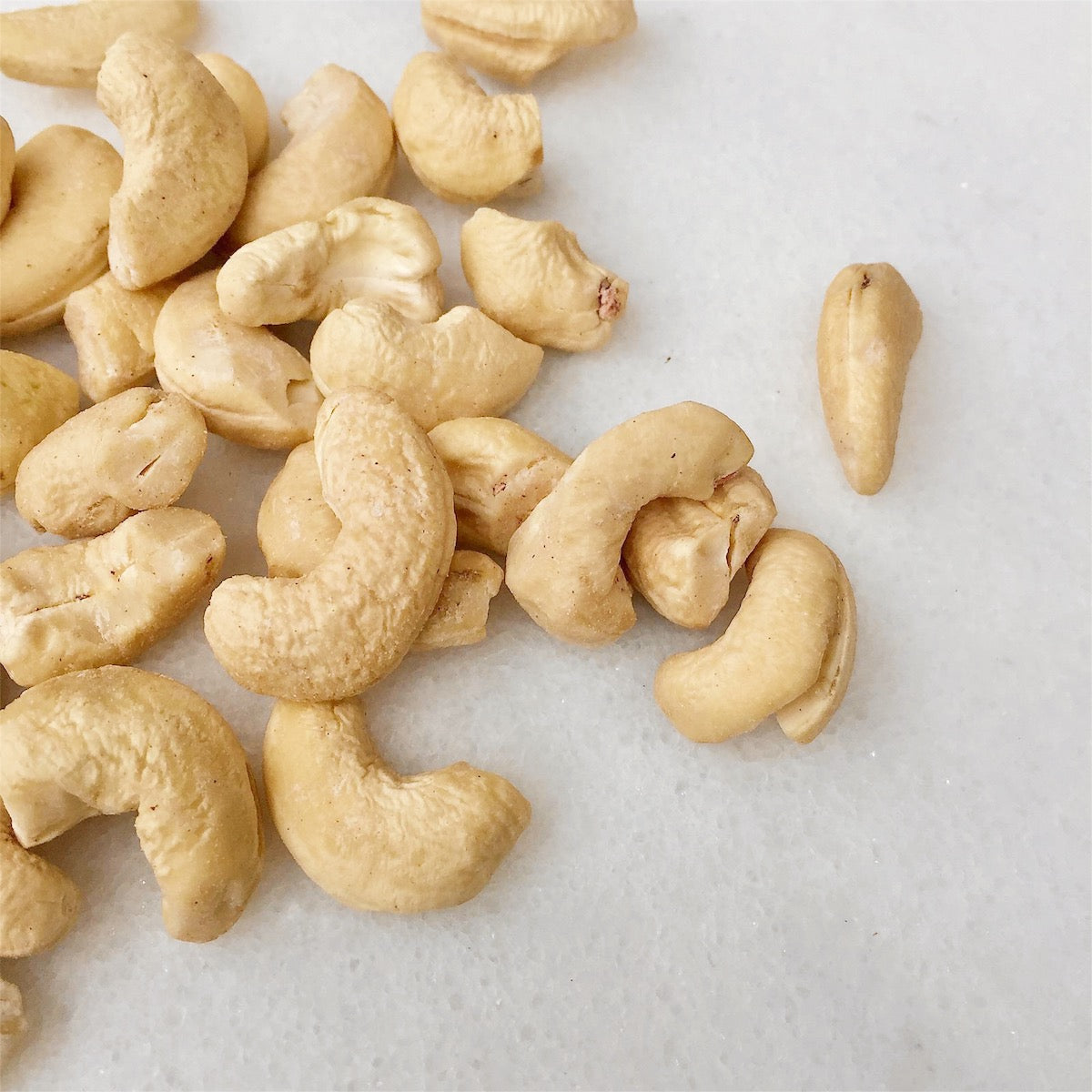The Dark Side of Cashew Production

Cashews are a popular nut, from dairy alternatives, to nut flours and snack food there is a reason cashews are one of the worlds largest nut crop. But unlike most of the nuts we consume, such as almonds, hazelnuts, pecans, pistachios and macadamia nuts, which are grown primarily in North America or Europe, cashews are grown in the poorest parts of the world. India, Africa, Vietnam and Brazil are where the majority of cashew growing, harvesting and processing occurs. Unfortunately at times the lack of labour and safety standards in these parts of the world can result in disturbing practices within the cashew industry.
Shelling cashew nuts involves hard and dangerous manual labour. The cashew nut contains a caustic liquid between its two layers of very hard shell, if workers are inadequately trained or protected, the liquid can cause vicious burns. Shelling is most often done by women, many who have permanent damage to their hands, lungs and eyes because of the lack of proper protective gear. It is not just safety and health issues that plague the cashew industry, human rights violations are also documented. TIME magazine has dubbed Vietnamese cashews “Blood Cashews”, in reference to the shelling of cashews in forced labour camps under brutal conditions. The American Department of Labour has listed Brazil and Guinea as places known to use child labour for cashew shelling.
It doesn't have to be this way; our cashews come from small family farms in Indonesia, where the workers are fairly paid and given proper protective gear. The cashews also go through a special freezing process while still in shell to reduce the caustic liquid that it contains.
These cashews are organically farmed, sparing the farmers and the local ecosystems from exposure to chemicals. These cashews do cost more, but this added cost ensures that the people who work so hard to farm and process our cashews are properly compensated and protected. To buy our cashews click here.